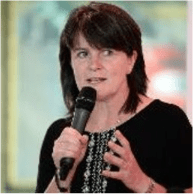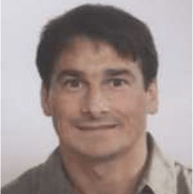- ...
Masters Compare - Find your perfect masters course.


PhD and EngD programmes in South West England
49 international companies, 6 top universities, 3 cutting edge research themes, 1 world-leading centre. Start your engineering career now.

The EPSRC Centre for Doctoral Training in Future Innovation in Non-Destructive Evaluation (FIND-CDT) has been created to provide PhD programmes in the vital field of NDE.
FIND-CDT connects universities and industry companies together. The result is research that makes a difference – EDF, Airbus and E.ON are just a few of the companies our students have worked with to create real impact.
We are a leading international centre of excellence in Doctoral- level training in sensing, imaging and analysis for Non-Destructive Evaluation (NDE). In 8 years time all the major end users of NDE will have at least one our doctoral graduates progressing to senior research and technical roles. These graduates will have been instrumental in making UK industry world leaders in the integration of NDE in the anticipated 4th industrial revolution.
The EPSRC Centre for Doctoral Training in Future Innovations in Non Destructive Evaluation (FIND-CDT) is a select consortium of 6 universities integrating research with industries:
The Centre provides exciting opportunities for collaborative industry-university research in advanced sensor and imaging technology, and is designed to launch outstanding graduates into an engineering career.
Both PhD and EngD studies are offered, and the courses combine advanced knowledge and professional development training modules with industrially relevant research. PhD projects tend to be more fundamental research while EngD projects tend to be more applied. Applications are now open for a range of 4-year Engineering Doctorates, of equivalent academic standing to a PhD. During the 4 years of either a PhD or EngD, each student completes a range of cohort-based advanced technical courses and courses on innovation and entrepreneurship, all delivered by world leading experts. Students present their research at national and international conferences and at regular events to audiences from across industry. Networking workshops provide opportunities for collaboration across disciplines, reflecting the wide range of scientific skills needed within this area.
With close links to the related UK Research Centre in NDE (RCNDE), students are part of a vibrant community of more than 200 researchers and have access to a range of technical training courses delivered by world leading experts.
The new Centre builds on the previous CDT in Quantitative NDE, whose cutting edge research has resulted in the successful creation of new companies, including Inductosense and Guided Ultrasonics. FIND-CDT has been actively co-created by a consortium of 49 companies including SMEs and industry sector leaders such as Airbus, Rolls-Royce, EDF, BAE Systems and Shell. 38 out of 40 of the previous cohort of doctoral graduates now work in industry, nearly all NDE related, and several in already in senior roles. See where the previous CDT has taken some of our students on Student Journeys.
Most PhD/EngD programmes will start with a completely taught first year. With FIND-CDT, you will be immersed in industry from day one, making it unique in its approach and preparing you for your career immediately. Please see the programme structure for details of how each year is spent.
Independent Advisors

Professor Karen Holford, Cardiff University
Professor Holford’s career began at Rolls-Royce in Bristol where she completed an undergraduate apprenticeship reading Mechanical Engineering at UWIST, followed by a PhD at the University of Wales College Cardiff. She then worked at AB Electronic Products, where she was responsible for developing automotive products for companies such as BMW, Jaguar and Rover, and was soon promoted to the role of senior engineer. She joined the School of Engineering at Cardiff University as a lecturer in 1990, becoming Director in 2010. In 2012 she became the University’s first Pro Vice-Chancellor and Head of the College of Physical Sciences and Engineering, before taking up the role of Deputy Vice-Chancellor in April 2017.

Professor Koen Van Den Abeele, KU Leuven
Campus Chair of the Science, Engineering and Technology Group, Kulak Kortrijk Campus
Campus Chair of the Faculty of Science, Kulak Kortrijk Campus
Head of Physics, Kulak Kortrijk Campus
Head of the Subdivision Ultrasonic Spectroscopy for Non-destructive Testing
Professor Rob Dwyer-Joyce, Sheffield University
Professor of Tribology and Lubrication Engineering in the Department of Mechanical Engineering. He is Director of the Centre for Doctoral Training in Integrated Tribology and manages the Leonardo Centre for Tribology. He is a Fellow of the Royal Academy of Engineering and a Fellow if the Institution of Mechanical Engineers. He currently holds an EPSRC Advanced Career Fellowship in Tribo-Acoustic Sensors.